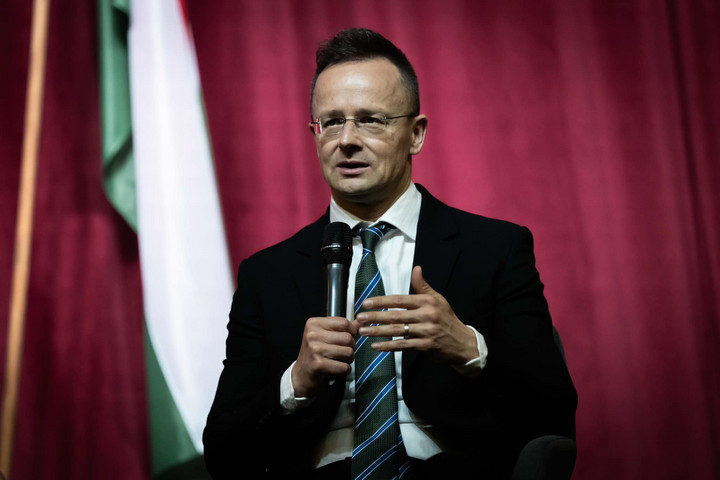The European Parliament approved on Wednesday the EU’s controversial New Pact on Migration and Asylum, but Hungarian Minister of Foreign Affairs and Trade Péter Szijjártó was quick to reiterate Budapest’s opposition to its implementation and vowed to maintain existing border restrictions.
“This pact would give the green light for tens and hundreds of thousands of migrants to come to European countries and would extend to Central Europe the problem of Western Europe, which started when they gave up the protection of their own identity, their own culture, and their own society, letting in illegal migrants, creating a double society, and increasing the threat of terrorism,” Szijjártó warned.
“We will not allow this in Central Europe. We Hungarians, no matter what pressure we are under, no matter what kind of migration pact the MEPs vote for, we will not give up on the physical border. We will protect the border,” he added.
The new asylum and migration package was passed largely with votes from lawmakers affiliated with the European People’s Party, the Socialists and Democrats (S&D), and Renew Europe, with MEPs being urged to swallow their criticisms of the scheme and vote for the compromise legislation.
Szijjártó stressed that Hungary has been protecting the external borders of the European Union and the Schengen Area from illegal immigrants for nine years now, for which the government has not only received no support from Brussels, but has also been under constant pressure to abandon the borders and thus the protection of Hungarian culture and identity.
“Today in Brussels, there is a pro-war and pro-migration leadership that is putting pressure and launching attacks against any country that wants to preserve its own security, its own identity, and stand up for peace,” he said.
The minister expressed his regret that the most important issues for the future of Europe are now being debated on ideological grounds, including migration.
“Today, the vast majority of debates are politicized, ideologically based, and dogmatic, and it is difficult to have a normal discussion on important issues,” he said.






